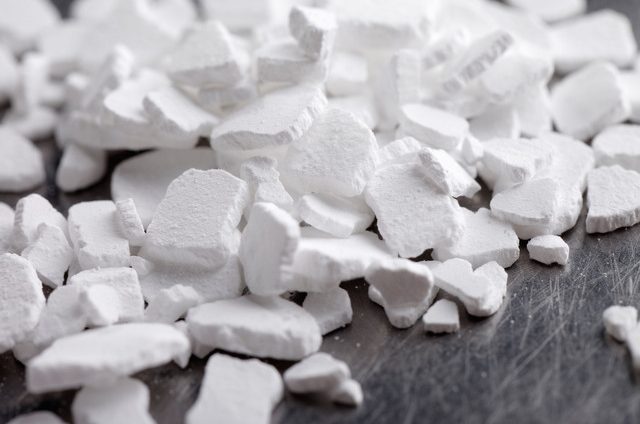
Calcium Chloride (CaCl2): Uses, Types, Applications, Advantages.
Calcium chloride (CaCl₂) is one of the world’s most versatile inorganic salts. Thanks to its unique combination of properties — high solubility in water, strong hygroscopicity (moisture absorption), ability to lower water’s freezing point, and readiness to generate heat when dissolved — it sees widespread use in industries ranging from winter road maintenance and construction to oil & gas drilling, water treatment, food processing, and more.
In this comprehensive article, we examine what calcium chloride is, why it matters, how it’s produced, and how it delivers value across different sectors. We also highlight key benefits, application methods, and safety or environmental considerations, with Peak Universal Business as a premier supplier of this essential chemical.
What is Calcium Chloride (CaCl2)?
Calcium chloride is an inorganic salt with the chemical formula CaCl₂. It typically appears as a white (or off-white) granular, flake, or pellet solid in its anhydrous form, though it can also exist as a dihydrate (CaCl₂·2H₂O). Its high solubility in water, strong affinity for moisture, and ionic nature make it highly reactive (in a good way) for many practical applications.
Depending on form and concentration, calcium chloride can be used as a solid additive, dissolved in water as a brine, or formulated into more complex chemical solutions. The flexibility of its physical state and chemical behavior underpins its broad industrial value.
Key Characteristics:
- Hygroscopic Nature: It has a strong ability to absorb moisture from the air, making it an excellent drying agent.
- Exothermic Reaction: When dissolved in water, calcium chloride releases a significant amount of heat, which makes it effective for de-icing and dust control.
- High Solubility: Calcium chloride dissolves easily in water, forming a clear, colorless solution.
- Versatility: It can be used in a wide range of applications, from industrial processes to everyday household uses.
Uses and Applications of Calcium Chloride
It is utilized in numerous applications due to its unique properties. Here are some of the most common uses: De-Icing and Snow Removal, Dust Control, Concrete Acceleration, Desiccant and Drying Agent, Food Preservation, Oil and Gas Industry, Refrigeration
1. De-Icing and Snow Removal
De-Icing and Snow Removal– One of the most prevalent uses of calcium chloride is for de-icing roads, sidewalks, and driveways. Due to its ability to lower the freezing point of water, it effectively melts ice and snow even at lower temperatures compared to other de-icing agents like sodium chloride. The exothermic reaction of calcium chloride when it dissolves in water further enhances its ice-melting capabilities.
2. Dust Control
It is widely used for dust control on unpaved roads, construction sites, and other areas where dust suppression is needed. When applied to the surface, it attracts moisture from the air and forms a damp layer, binding dust particles and preventing them from becoming airborne.
3. Concrete Acceleration
In the construction industry, It is used as an accelerator in concrete. It speeds up the setting time and increases early strength development, which is particularly beneficial in cold weather conditions where concrete curing is slowed down.
4. Desiccant and Drying Agent
It is a hygroscopic nature makes it an effective desiccant for drying gases, air, and organic liquids. It is commonly used in packaging to keep products dry and in various industrial processes that require moisture control.
5. Food Preservation
Food Preservation– In the food industry, It is used as a firming agent for canned vegetables and as a brine in the pickling process. It helps maintain the firmness and texture of fruits and vegetables during processing and storage.
6. Oil and Gas Industry
It is used in the oil and gas industry for drilling fluids, workover, and completion fluids. It helps increase the density of the fluid, providing the necessary hydrostatic pressure to maintain well control.
7. Refrigeration
In refrigeration, calcium chloride brine solutions are used as a cooling medium. They are efficient at transferring heat and are commonly used in industrial refrigeration systems and ice-making processes.
Types of Calcium Chloride (CaCl2)
It is available in various forms, each suited for different applications. The main types include:
1. Anhydrous
Anhydrous calcium chloride is a highly concentrated form of calcium chloride that contains no water. It is available in granules, pellets, or powder form and is used primarily as a desiccant due to its strong moisture-absorbing properties.
2. Dihydrate
Dihydrate calcium chloride contains two molecules of water for every molecule of calcium chloride. It is commonly used for de-icing, dust control, and concrete acceleration. It is available in flake or pellet form.
3. Liquid
Liquid Calcium Chloride is a concentrated solution typically used for dust control, de-icing, and as a drilling fluid in the oil and gas industry. It is easy to apply and can be sprayed directly onto surfaces.
4. Food-Grade
Food-grade Calcium Chloride is specially purified for use in food processing. It meets stringent safety and quality standards and is used as a firming agent, preservative, and in various food manufacturing processes.
Applications:
Calcium chloride’s wide range of applications spans various industries. Here are some key applications:
1. Industrial Applications
- De-Icing and Snow Removal: It is used extensively by municipalities, highway departments, and private contractors for de-icing roads, highways, and sidewalks during winter.
- Dust Control: It is applied to unpaved roads, construction sites, and mining operations to suppress dust and improve air quality.
- Concrete Acceleration: Construction companies use calcium chloride to accelerate the setting time of concrete, especially in cold weather conditions.
- Refrigeration: Industrial refrigeration systems utilize calcium chloride brine solutions for efficient cooling.
2. Oil and Gas Industry
- Drilling Fluids: It is used in drilling fluids to increase density and maintain well control.
- Completion Fluids: It is used in completion fluids to ensure proper pressure balance and prevent blowouts.
3. Food Industry
- Firming Agent: It is used to firm up fruits and vegetables in canning and pickling processes.
- Preservative: It helps extend the shelf life of various food products by maintaining their texture and preventing spoilage.
4. Agriculture
- Soil Amendment: It is used as a soil amendment to improve soil structure and enhance water retention.
- Animal Feed: It is added to animal feed as a source of calcium and chloride, essential nutrients for livestock.
5. Medical and Laboratory Uses
- IV Solutions: It is used in intravenous (IV) solutions to treat calcium deficiencies and electrolyte imbalances.
- Laboratory Reagent: It is used in various laboratory applications, including as a reagent in chemical analysis and preparation.
Advantages:
Calcium chloride offers several advantages that make it a valuable chemical in various applications:
1. Effective De-Icing Agent
Calcium chloride is highly effective at melting ice and snow at lower temperatures compared to other de-icing agents. Its exothermic reaction releases heat, enhancing its ice-melting capabilities.
2. Superior Dust Control
Calcium chloride attracts moisture from the air, forming a damp layer that binds dust particles. This makes it an excellent choice for dust control on unpaved roads and construction sites.
3. Accelerates Concrete Setting
In the construction industry, calcium chloride accelerates the setting time of concrete, enabling faster construction and reducing delays, especially in cold weather conditions.
4. Moisture Absorption
As a desiccant, calcium chloride effectively absorbs moisture from the air, making it ideal for use in packaging, drying gases, and moisture control in industrial processes.
5. Versatility
Calcium chloride is versatile and can be used in a wide range of applications, from industrial processes to food preservation, agriculture, and medical uses.
Disadvantages:
Despite its numerous advantages, calcium chloride also has some disadvantages that should be considered:
1. Corrosiveness
Calcium chloride can be corrosive to metals, including steel and aluminum, which can cause damage to vehicles, infrastructure, and equipment. Corrosion inhibitors are often added to formulations to mitigate this issue.
2. Environmental Impact
While calcium chloride is generally considered safe for the environment, excessive use can lead to soil and water contamination. It is important to use it responsibly and follow guidelines for application.
3. Health Hazards
Calcium chloride can cause skin and eye irritation upon contact. Inhaling dust or fumes can also cause respiratory irritation. Proper handling and protective measures should be taken to minimize exposure.
4. Cost
Calcium chloride can be more expensive than other de-icing and dust control agents, which may be a consideration for budget-sensitive applications.
Future Prospects:
The future prospects of calcium chloride are promising, driven by ongoing advancements in technology and increasing demand for effective chemical solutions. Key trends and developments include:
1. Sustainable Practices
There is a growing emphasis on sustainability in the chemical industry. Manufacturers are focusing on developing environmentally friendly formulations of calcium chloride that minimize environmental impact while maintaining effectiveness.
2. Advanced Applications
Ongoing research and development are leading to new applications for calcium chloride in various industries. This includes innovative uses in agriculture, such as enhancing soil health and improving crop yields.
3. Increased Demand in Construction
The construction industry is expected to see increased demand for calcium chloride due to its role in accelerating concrete setting and improving construction efficiency, especially in regions with cold climates.
4. Improved Formulations
Advancements in chemical engineering are leading to improved formulations of calcium chloride with enhanced performance characteristics, such as reduced corrosiveness and increased effectiveness at lower dosages.
Calcium chloride (CaCl₂) Price Factors:
Several factors influence the price of calcium chloride, including:
1. Raw Material Costs
The cost of raw materials used in the production of calcium chloride, such as limestone and hydrochloric acid, can impact the overall price of the product.
2. Production Methods
Different production methods, such as extraction from natural brine or as a by-product of other processes, can affect the cost of calcium chloride.
3. Purity and Form
The purity and form of calcium chloride (e.g., anhydrous, dihydrate, liquid) can also influence its price. Higher purity and specialized forms, such as food-grade calcium chloride, tend to be more expensive.
4. Transportation and Distribution
Transportation and distribution costs play a significant role in the final price of calcium chloride, especially for bulk shipments.
5. Market Demand
Fluctuations in market demand, driven by seasonal factors (e.g., increased demand for de-icing in winter) and industrial needs, can impact the price of calcium chloride.
Why Choose Peak Universal Business as Your Supplier?
Choosing the right supplier for calcium chloride (CaCl2) is crucial for ensuring the quality, reliability, and efficiency of your operations. Peak Universal Business stands out as a premier supplier of calcium chloride, offering several compelling reasons to partner with us for your CaCl2 needs.
1. Superior Quality Products
At Peak Universal Business, we prioritize quality above all else. Our products are sourced from reputable manufacturers and undergo rigorous quality control processes to ensure they meet the highest industry standards. Whether you need anhydrous calcium chloride, dihydrate, or liquid forms, we provide products that deliver consistent performance and reliability.
2. Wide Range of Applications
We understand the diverse applications of calcium chloride across various industries, including de-icing, dust control, concrete acceleration, and food preservation. Our extensive product range is designed to meet the specific needs of different sectors, ensuring that you receive the right type for your application.
3. Expert Support and Technical Assistance
Our team of experts is dedicated to providing exceptional customer support and technical assistance. We offer guidance on product selection, application techniques, and safety measures to help you optimize the use of calcium chloride in your operations. Our knowledgeable staff is always available to answer your questions and address any concerns.
4. Competitive Pricing and Timely Delivery
Peak Universal Business offers competitive pricing on all our products, ensuring you receive excellent value for your investment. We also understand the importance of timely delivery and have established efficient logistics and distribution networks to ensure your orders are delivered promptly and reliably.
5. Commitment to Sustainability
We are committed to sustainable practices and continually seek ways to minimize the environmental impact of our products. Our products formulations are designed to be effective while reducing potential harm to the environment, aligning with your sustainability goals.
6. Trusted Partner
With a reputation for excellence and reliability, Peak Universal Business has become a trusted partner for businesses across various industries. Our commitment to quality, customer satisfaction, and sustainable practices makes us the ideal choice for all your needs.
Conclusion- What is Calcium Chloride used for?
Calcium chloride (CaCl2) is a versatile and valuable chemical with a wide range of uses, from de-icing and dust control to concrete acceleration and food preservation. Its unique properties, including its hygroscopic nature and exothermic reaction, make it suitable for numerous applications across various industries. While calcium chloride offers several advantages, such as effectiveness and versatility, it also has some disadvantages, including corrosiveness and potential environmental impact.
The future prospects of calcium chloride are bright, with ongoing advancements in sustainable practices, innovative applications, and improved formulations driving its continued use and demand. Peak Universal Business is a trusted supplier of high-quality products, offering superior products and expert support to meet your needs.
Uses and Applications of (CaCl2): De-Icing and Snow Removal, Dust Control, Concrete Acceleration, Desiccant and Drying Agent, Food Preservation, Oil and Gas Industry, Refrigeration
You can Read More about this product Here:
What are the 7 functions of Drilling Fluid Mud?
Applications of Barite in Drilling Mud
What are drilling fluid additives?
If You have any other Query or Question you want to ask, Please don’t hesitate to Contact Us.
- 0 comment
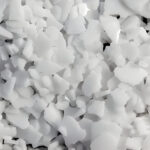
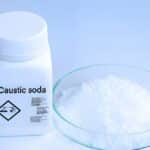
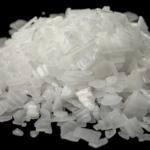

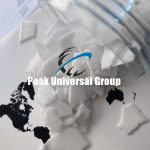
Leave a Reply